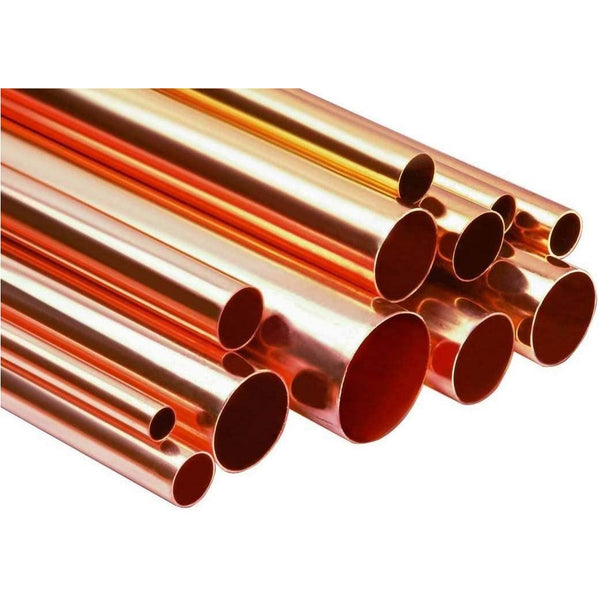Enhancing Your Kitchen Area with Premium Copper Products: Tips and Finest Practices
Enhancing Your Kitchen Area with Premium Copper Products: Tips and Finest Practices
Blog Article
How Copper Products Add To Sustainable Practices in Numerous Industries
In sustainable energy systems, for instance, copper improves the performance of solar and wind modern technologies, while its application in building and construction minimizes waste through durability. As sectors look for to take on more lasting methods, the function of copper might prove essential in achieving environmental objectives.
Copper in Renewable Energy
Copper plays an important role in the advancement of renewable resource technologies, acting as an essential conductor in various applications. Its extraordinary electric conductivity and resistance to corrosion make it a suitable material for electrical wiring, which is necessary in photovoltaic panels, wind turbines, and energy storage systems. In solar photovoltaic systems, copper is made use of in the interconnections and circuitry, enabling effective power conversion from sunlight to electrical energy.
In wind power, copper is indispensable to the generators and transformers that convert kinetic power into electric power, making sure ideal efficiency and integrity. The need for electric cars (EVs) is raising, with copper being a key part in batteries, electric motors, and billing framework. The change to EVs substantially boosts the demand for copper, as these cars commonly use four times more copper than conventional interior combustion engine cars.
As the globe seeks to mitigate environment change and transition to sustainable energy resources, copper's duty becomes progressively vital. The material not only enhances the efficiency and toughness of renewable energy systems however likewise supports the wider objective of minimizing greenhouse gas exhausts and advertising a lasting future.
Eco-Friendly Building And Construction Products
Over the last few years, there has actually been a noteworthy shift towards the adoption of environmentally friendly building materials in response to expanding environmental worries. This modification is encouraged by the demand for lasting options that lessen environmental impacts while maintaining structural stability and aesthetic allure.
Copper, understood for its longevity and recyclability, has actually become a principal in this industry. It can be made use of in roofing, pipes, and electric systems, contributing to energy performance and decreasing waste. Copper's longevity indicates fewer replacements with time, more enhancing its sustainability account.
In addition, materials such as bamboo, redeemed wood, and reused steel are obtaining popularity. These choices not only use reduced ecological impact however likewise advertise resource preservation. As constructing codes progressively stress sustainability, contractors and architects are integrating these products right into their projects, fostering development in layout.
The enhancing fostering of green construction products shows a wider commitment to sustainability in the developed setting. By focusing on these materials, the construction market can significantly reduce its carbon impact, line up with regulatory requirements, and sustain a much healthier community for future generations. This trend marks a critical action in the direction of a more sustainable future in building and construction.
Copper's Duty in Health care
Recent research studies have actually highlighted the substantial role of copper in health care setups, especially due to its antimicrobial residential properties. Copper surfaces have been revealed to minimize the existence of pathogens, consisting of viruses and bacteria, by approximately 99.9% within a brief duration. This exceptional effectiveness makes copper a vital product for high-touch surface areas in health centers, such as doorknobs, bed rails, and IV poles, therefore adding to enhanced infection control actions.
In enhancement to its direct antimicrobial effects, copper likewise contributes in the broader context of healthcare facility page sustainability (Copper Products). By including copper into clinical tools and furnishings, health care facilities can reduce the occurrence of healthcare-associated infections (HAIs), which not only boosts client outcomes however also decreases the expenses connected with extended medical facility keeps and additional therapies
Additionally, copper's longevity and recyclability align with sustainable methods, enabling accountable source administration. As medical care systems increasingly focus on both Check Out Your URL patient safety and security and environmental stewardship, the combination of copper items is becoming a lot more widespread. This twin benefit emphasizes copper's crucial payment to a much healthier, more secure, and a lot more lasting health care atmosphere.
Sustainability in Transportation

Moreover, copper's durability and corrosion resistance add to the longevity of transport framework (Copper Products). In rail systems, for example, copper components boost the reliability and performance of signaling and power systems, essential for lowering hold-ups and energy intake. Additionally, copper's duty in eco-friendly power systems, such as solar and wind, supports lasting transport solutions by supplying tidy power for electrical transit alternatives
Investments in copper modern technology not just foster sustainability but also stimulate financial growth and job development in eco-friendly fields. As sectors aim to satisfy rigid ecological regulations, the application of copper items in transportation becomes an essential approach in accomplishing sustainability objectives and advertising a cleaner, much more efficient future.
Copper and Circular Economic Climate
As the globe progressively accepts sustainability, the function of copper in the round economy comes to be ever more considerable. Copper's inherent imp source residential or commercial properties-- such as its durability, recyclability, and conductivity-- position it as a vital material in a resource-efficient economic climate. The round economy intends to lessen waste and make best use of source use with recycling and reusing materials, and copper excels in this respect.
The metal can be recycled forever without loss of quality, making it an excellent candidate for sustainable methods across numerous markets, consisting of construction, electronics, and sustainable power. By recouping and reprocessing copper from end-of-life products, markets can substantially lower the requirement for virgin products, therefore reducing environmental effects connected with mining and handling.
Additionally, the assimilation of copper into circular economy frameworks not only preserves sources yet likewise promotes innovation. Organizations that focus on copper recycling add to a much more lasting supply chain, boosting their competitiveness while straightening with regulatory needs and customer choices for ecologically responsible items.
Final Thought
To conclude, copper products significantly contribute to sustainable practices throughout several fields. Their important function in boosting renewable resource technologies, promoting green building and construction products, supporting infection control in medical care, helping with sustainable transport, and embodying the concepts of a circular economic situation highlights the adaptability and relevance of copper. By integrating copper into various applications, industries can achieve greater effectiveness, decrease environmental effect, and line up with international sustainability objectives, eventually promoting a much more sustainable future.

Copper's exceptional conductivity makes it a preferred material in electrical automobile (EV) systems, enhancing energy effectiveness and performance. Furthermore, copper's duty in eco-friendly energy systems, such as solar and wind, supports lasting transportation remedies by offering tidy power for electric transit choices.
Their crucial function in improving sustainable energy technologies, promoting green building and construction materials, supporting infection control in medical care, helping with lasting transportation, and symbolizing the principles of a circular economic situation underscores the convenience and relevance of copper.
Report this page